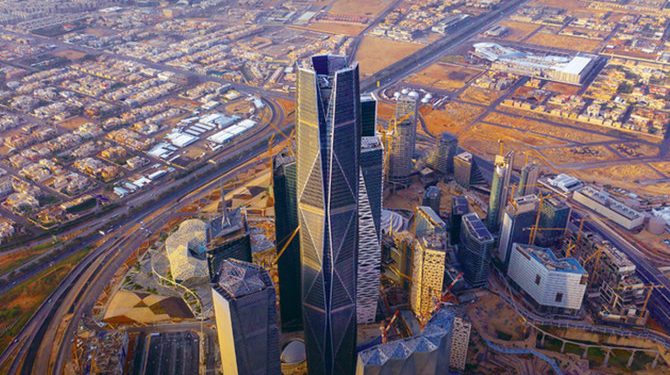Saudi Arabia is taking concrete steps to position itself as a global leader in digital technologies. The Kingdom’s Vision 2030 for a diversified economy relies heavily on digital transformation initiatives, an area the government has always focused on and heavily invested in long before the pandemic.
As with any rapidly maturing market, the ICT ecosystem in Saudi Arabia is evolving fast, paving the way for a ‘digital-first’ mindset across verticals – including government, health, smart cities, tourism, telecommunications, energy, utilities, financial, education, manufacturing, and retail – with an increased focus on efficiency, optimization, innovation, and customer-centricity.
“In preparation for this monumental event, Riyadh is poised to enhance its urban infrastructure, technology, transportation, and sustainable energy resources. The city will accommodate 246 participating nations across a 6 million square meter venue, with a groundbreaking virtual extension expected to attract 1 billion Metaverse visitors, complementing the 40 million anticipated in-person attendees. Coinciding with the culmination of Saudi Arabia’s Vision 2030, the Riyadh Expo’s theme, ‘A Different Tomorrow,’ echoes the nation’s transformative journey over the past 15 years. Technology and science have been the bedrock of Saudi Arabia’s metamorphosis, and the Expo aims to showcase how these tools can forge a resilient and humane future,” says Mohamed Al Shobani, CIO, SAICO Insurance.
“Hosting the Expo will catalyze the progress of Saudi Arabia’s technology sector, accelerating demand for advanced technologies in readiness for the event. It presents unparalleled opportunities for collaboration with the global community, fostering innovative technological applications on Saudi soil, and opening up the market to both burgeoning and established businesses,” Al Shobani adds.
AI will play a crucial role in Riyadh Expo
The Saudi government has made significant advancements in digitally transforming itself by effectively utilizing innovative and emerging technologies to deliver upon key business priorities, including citizen experience, digital operations, sustainability, and security. As Saudi Arabia accelerates its drive to become a true digital economy, artificial intelligence capabilities will be embedded into every single digital transformation initiative that is undertaken,” said Hamza Naqshbandi, IDC’s associate vice president for Saudi Arabia and Bahrain
According to IDC: “With data and AI at the heart of Vision 2030, Saudi Arabia is developing its own AI strategy and policies, as well as the skills and resources required to fully implement them. AI is expected to contribute over $135 billion to the Saudi economy by 2030, equivalent to 12.4% of the GDP, while spending on AI/ML in the Kingdom is forecast to grow at a CAGR of 22.2% through 2024.
KSA as a global smart-city county leader
Saudi Arabia has an entire plan around smart cities and communities for their 17 major cities. In 2017, Saudi Crown Prince Mohammed bin Salman announced that a new city would be built from scratch in Saudi Arabia’s northwest deserts called NEOM. Since then, the government has made active efforts to bring “smart” technologies to amenities such as transport, communications and electricity, among others.
It will be mainly made up of two sectors, The Line (residential) and Oxagon (industrial). The Line will be a smart city, with Artificial Intelligence monitoring the city and its residents. It will use predictive models and big data to improve daily life for citizens. Oxagon has been projected as a technological and industrial headquarters partially artificially located on the Red Sea.
Riyadh Expo 2030 is expected to bring in billions of dollars in tourism revenue, while for tech vendors it is an opportunity to showcase itself as a serious purveyor of smart city applications.


